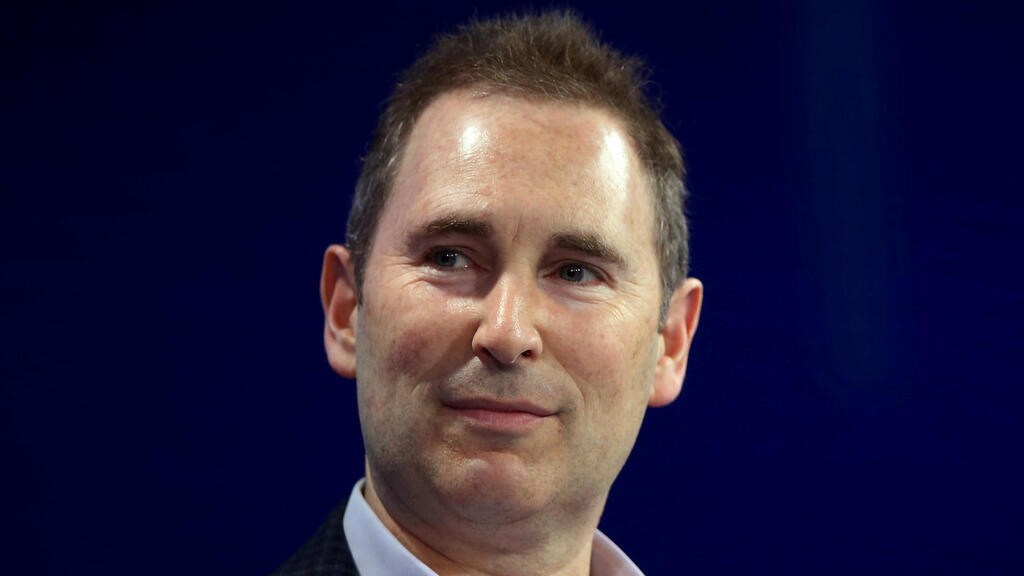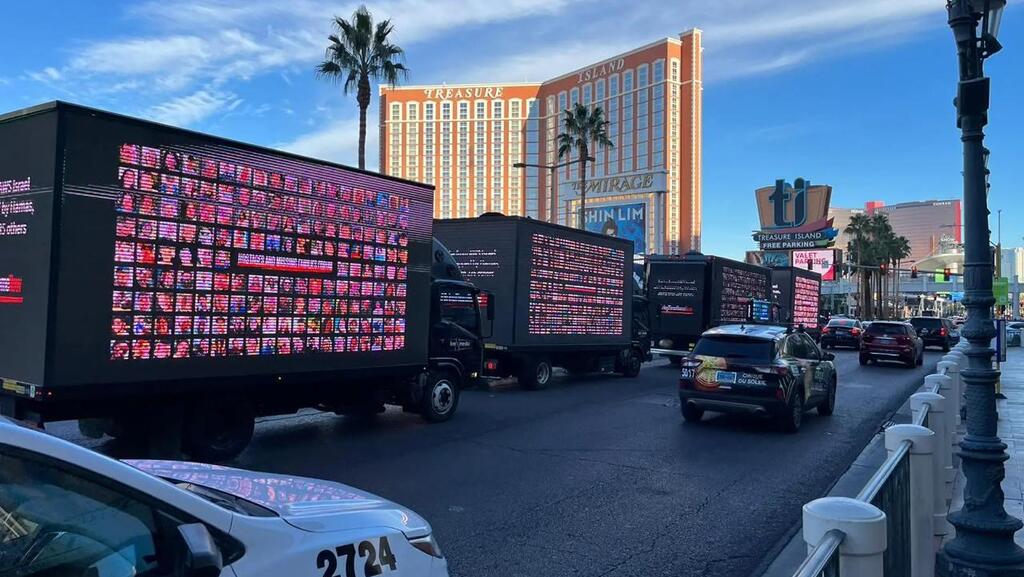Getting your Trinity Audio player ready...
After 498 days in Hamas captivity, Sagui Dekel-Chen, Iair Horn and Alexander "Sasha" Troufanov were released Saturday and returned to Israel as part of the ongoing hostage-prisoner exchange deal.
Troufanov, 29, an electrical engineer at Amazon Web Services (AWS), was kidnapped on October 7 while visiting his family in Kibbutz Nir Oz with his partner Sapir Cohen. His mother Yelena and grandmother Irina, were also abducted, while his father Vitaliy, was murdered during the Hamas attack. The three women were released in November 2023, but Troufanov remained in captivity for nearly 16 months.
4 View gallery


Hostage Alex Troufanov during his release from Gaza captivity
(Photo: Eyad BABA / AFP)
Upon his release, Amazon Andy Jassy confirmed Troufanov’s return in a blog post, saying, "I’m incredibly relieved to share the news that our AWS teammate, Sasha Troufanov, who had been held hostage since the October 7, 2023 attacks in Israel, has been released from captivity."
Jassy revealed that a dedicated team at Amazon worked behind the scenes to support efforts for Troufanov’s release but chose not to issue public statements, fearing they could jeopardize his safety or harm his chances of release.
Get the Ynetnews app on your smartphone: Google Play: https://bit.ly/4eJ37pE | Apple App Store: https://bit.ly/3ZL7iNv
"It’s been an extremely trying time for everybody who knows and cares for Sasha — a lot of angst and feelings of helplessness. But, it can’t approach what Sasha and his family have been through, and we will continue to support them and do everything we can to help them heal," Jassy wrote. "My heart goes out to everyone who has been impacted by the war and I continue to hope that we get on a long-term peaceful path."
While Amazon remained largely silent about Troufanov's captivity, other major U.S. tech firms took a more vocal stance regarding employees kidnapped by Hamas.
Nvidia CEO Jensen Huang publicly called for the release of kidnapped Nvidia employee Avinatan Or and led support efforts. In contrast, Amazon’s global leadership refrained from commenting on Troufanov’s situation, leading to internal backlash from Jewish and Israeli employees.
Amazon employees protested the company’s silence, arguing that it contrasted sharply with its vocal support for movements like Black Lives Matter and Stop Asian Hate. Some critics suggested Amazon was avoiding statements to protect business ties in Muslim and Arab markets.
At an AWS conference in Las Vegas, colleagues rented a truck displaying Troufanov’s photo in an attempt to pressure company leadership to acknowledge his situation publicly, but Amazon did not issue a statement. Employees expressed frustration that the company continued business as usual without addressing his captivity.
Jewish American Billionaire Bill Ackman defended Amazon, arguing that a CEO's first responsibility is employee safety, writing on X: "The first priority of every CEO is the health and safety of his/her employees. One of Amazon’s employees is being held hostage by Hamas. One would therefore assume that Amazon is doing everything it can to help, but it has said nothing publicly."
Just days after October 7, Jassy released a vague statement condemning the attacks in Israel but without directly referencing Hamas or mentioning kidnapped employees: "The attacks against civilians in Israel are shocking and painful to watch. I have been in touch with our teammates there to make sure we do everything we can to help support their families and their safety.”
Employees criticized the statement as insufficient, contrasting it with Amazon’s stronger responses to other global crises.
Despite Amazon’s corporate silence, its Israeli branch actively supported efforts for Troufanov’s release. His photo was displayed at AWS events in Tel Aviv, employees were permitted to participate in volunteer efforts to raise awareness and Amazon posted his image in its Israeli offices in solidarity.
Amazon maintains a significant presence in Israel, with local data centers, hundreds of employees and a major role in the Israeli government's Nimbus cloud project, which powers sensitive government data systems. Many Israeli tech firms rely on Amazon's cloud services.





